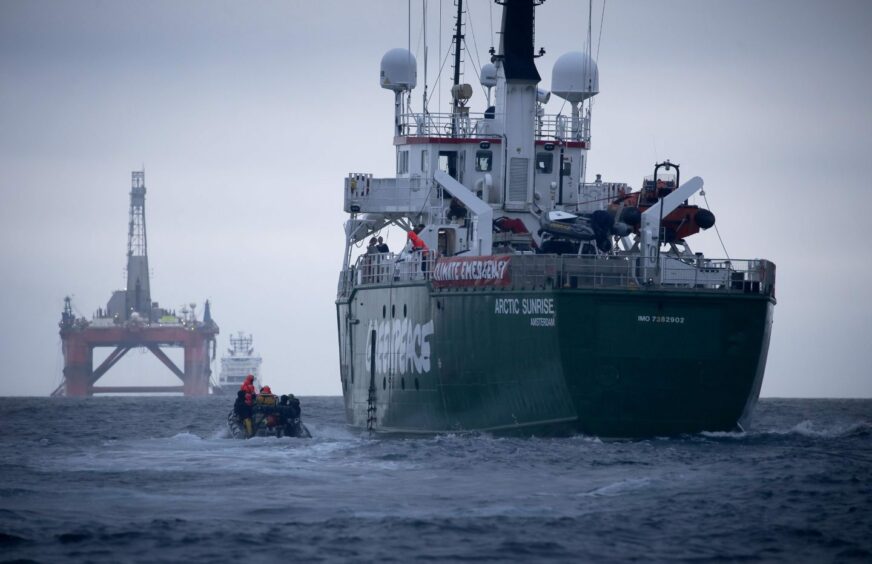 © Supplied by Greenpeace
© Supplied by Greenpeace Experts have said the UK North Sea is the “highest risk” location in the world for legal disputes to erupt in the oil and gas sector.
Law firm CMS has released its Oil and Gas Disputes Survey for 2021-2022, interviewing 50 legal managers and in-house counsel for the energy industry.
The UK is far-and-away viewed as the most likely place for legal disputes to break out, ranked top by 31% of respondents, followed by Africa and the Middle East (both 18%) and North America (13%).
Respondents said ageing oil and gas installations in the mature basin are contributing, “putting a strain on joint venture relationships” as different partner firms having differing commercial interests.
CMS also named regulator intervention, which results in an “alteration of behaviours”, and “reduced margins” in the UK as instigators.
Joint ventures and supply chain
However, CMS conceded that a high proportion of its respondents have ongoing operations in the UK North Sea, which is likely to have impacted their answers.
Respondents listed supply chain issues and joint ventures as the top two “key threats” for disputes in the UK.
However, the North Sea is also viewed as the most likely place in the world to face legal challenges from climate activists or investors, and other issues related to the energy transition.
Such challenges have been brought recently against the Shell Jackdaw field and the Ithaca-BP Vorlich oilfield.
“Protestor activities continue to present a serious threat to the industry as they increase in the UKCS and across other global markets,” CMS said.
Trilemma
Looking globally, the CMS team points to issues related to the “energy trilemma” – the clash between energy security, affordability and sustainability –when the cheap and, until recently, widely-used source of Russian gas is being phased out across Europe.
It comes as NGOs and activists challenging government consents for new projects.
“In that pressurised environment, there is certainly increasing potential for misalignment between joint venture partners as investment priorities are impacted by each company’s approach to the trilemma,” the report states.
Across all regions, joint ventures topped the list of risks, followed by projects and supply chain.
Asked specifically about the latter in the report, Neville Henwood,
legal and commercial director at Dana Gas PJSC, said there is “a lot of scope” for supply chain issues going forward.
He added: “We’ve already had occasions where we’ve been ready to grant a tender only for a supplier to say ‘hang on a minute, we’re now anticipating rising cost issues in delivering this contract.’ I do therefore expect an increase in disputes around supply chain but in most cases, from my own experience, they tend to be at the lower level.”
Better document management and earlier identification of risks were among the remedies suggested in the report.
Proactive approach
Valerie Allan, an Aberdeen-based partner and energy disputes and regulatory specialist at CMS, set out that disputes on JVs, supply chain and climate change-related issues are significant factors towards litigation in the UK.
She said: “Oil and gas industry legal teams will undoubtedly be looking to further develop a proactive approach in managing these risks and a deeper understanding of how they specifically relate to differing global markets.
“Effective engagement with governments and regulators is also identified as essential in understanding their perspective on the energy trilemma and ensuring that companies’ actions will be acceptable under the regulatory regime.”

